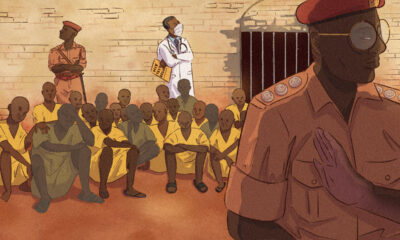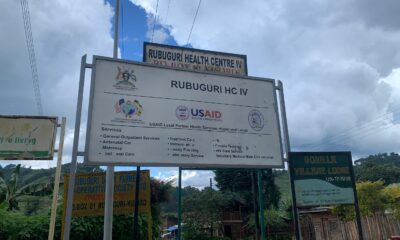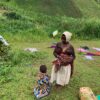Health
Uganda among 12 African countries set to receive 18 Million Malaria Vaccine doses
Twelve countries across different regions in Africa are set to receive 18 million doses of the first-ever malaria vaccine over the next two years.
The allocation of the vaccine doses has been determined through the application of principles outlined in the Framework for the allocation of limited malaria vaccine supply. The framework prioritizes the distribution of doses to areas with the highest need, where the risk of malaria illness and death among children is most severe.
Since 2019, Ghana, Kenya, and Malawi have been successfully implementing the malaria vaccine through the Malaria Vaccine Implementation Programme (MVIP). The program, coordinated by the World Health Organization (WHO) and funded by Gavi, the Vaccine Alliance, the Global Fund to Fight AIDS, Tuberculosis and Malaria, and Unitaid, has administered the RTS,S/AS01 vaccine to over 1.7 million children in these countries.
The vaccine has proven to be safe and effective, resulting in a significant reduction in severe malaria cases and child deaths. As many as 28 African countries have expressed interest in receiving the malaria vaccine.
In addition to Ghana, Kenya, and Malawi, the initial 18 million dose allocation will enable nine more countries, including Benin, Burkina Faso, Burundi, Cameroon, the Democratic Republic of the Congo, Liberia, Niger, Sierra Leone, and Uganda, to introduce the vaccine into their routine immunization programs for the first time.
This allocation round will utilize the supply of vaccine doses available to Gavi, the Vaccine Alliance via UNICEF. The first doses are expected to arrive in countries during the last quarter of 2023, with the rollout scheduled to begin in early 2024.
Thabani Maphosa, Managing Director of Country Programmes Delivery at Gavi, the Vaccine Alliance, expressed optimism about the vaccine’s impact, stating, “This vaccine has the potential to be very impactful in the fight against malaria, and when broadly deployed alongside other interventions, it can prevent tens of thousands of future deaths every year.”
Maphosa emphasized the importance of using the available doses effectively and incorporating lessons learned from the pilot programs as they expand to include a total of 12 countries.
Malaria remains one of Africa’s deadliest diseases, claiming nearly half a million children’s lives each year, primarily those under the age of 5. Africa also accounted for approximately 95% of global malaria cases and 96% of malaria-related deaths in 2021.
Ephrem T Lemango, UNICEF Associate Director of Immunization, highlighted the urgency of the vaccine rollout, stating, “Nearly every minute, a child under 5 years old dies of malaria. For a long time, these deaths have been preventable and treatable, but the rollout of this vaccine will give children, especially in Africa, an even better chance at surviving.”
Dr. Kate O’Brien, WHO Director of Immunization, Vaccines and Biologicals, emphasized the importance of equitable access to malaria prevention, saying, “The high demand for the vaccine and the strong reach of childhood immunization will increase equity in access to malaria prevention and save many young lives. We will work tirelessly to increase supply until all children at risk have access.”
Due to the limited supply during the initial years of the vaccine rollout, the World Health Organization assembled expert advisors primarily from Africa, where the burden of malaria is most severe, to develop a Framework for allocation of limited malaria vaccine supply. The framework is based on ethical principles and solidarity and proposes that vaccine allocation begins in areas of greatest need.
The Framework implementation group, comprising representatives from the Africa Centres for Disease Control and Prevention (Africa CDC), UNICEF, WHO, the Gavi Secretariat, civil society, and independent advisors, applied the framework principles to determine the vaccine allocation. The group’s recommendations received review and endorsement from the Senior Leadership Endorsement Group of Gavi, WHO, and UNICEF.
The global demand for malaria vaccines is projected to reach 40-60 million doses annually by 2026 and increase to 80-100 million doses per year by 2030. Apart from the RTS,S/AS01 vaccine, developed and produced by GSK and supplied by Bharat Biotech in the future, another vaccine called R21/Matrix-M, developed by Oxford University and manufactured by the Serum Institute of India (SII), is expected to receive WHO prequalification soon. Gavi has recently outlined its roadmap to support the increase in vaccine supply to meet the growing demand.










































